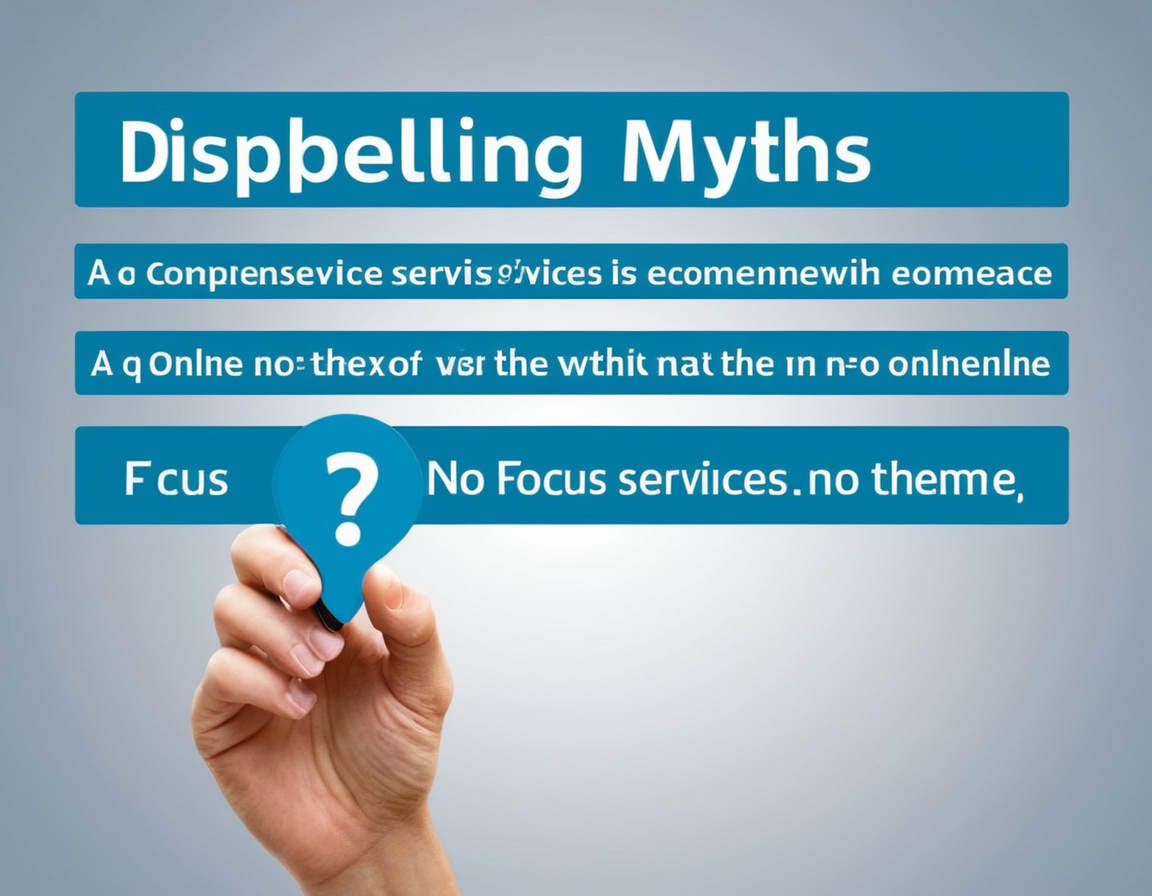: Dispelling Myths: A Comprehensive FAQ on Online Services & eCommerce

Introduction:
In the ever-evolving world of technology, online services and eCommerce have become integral parts of our daily lives. However, numerous misconceptions surround these platforms, leading to a lack of understanding that hinders their potential benefits. In this comprehensive FAQ guide, we will address common myths surrounding online services and eCommerce to provide you with accurate information for seamless digital experiences.
1. Are online transactions less secure than traditional ones?
False. Online transaction security is as robust as it is in brick-and-mortar stores. Secure Sockets Layer (SSL) encryption, two-factor authentication, and other advanced technologies ensure the protection of your sensitive information during every digital exchange.
2. Are online customer reviews trustworthy?
True, but with caution. While some customers may intentionally post fake reviews, legitimate feedback is often invaluable for understanding product quality or service experiences. Always verify the reviewer’s credibility and consider multiple sources before forming opinions on a particular product or service.
3. Do I need to be tech-savvy for online shopping?
False. Online platforms are designed with user-friendliness in mind, making them accessible to all users, regardless of their technical expertise. However, if you encounter difficulties, most sites offer 24/7 customer support and FAQ sections to guide you through the process.
4. Can I trust online services for important tasks?
True. Online platforms like cloud storage or project management tools are reliable when used correctly. Ensure that you choose a reputable service with a track record of success, and always backup your critical data in multiple locations.
5. Are social media platforms just for personal use?
False. While many users engage socially on these sites, businesses can also leverage social media platforms to promote their brands, communicate with customers, and share information about products or services. A well-crafted strategy that involves engaging and regular posting will yield results in terms of increased visibility and customer satisfaction. Learn more about Myths
6. Is cybersecurity an issue for online service providers?
True. Cybersecurity is a major concern for all online service providers as they strive to protect their customers’ data. Reputable platforms invest heavily in robust security measures like firewalls, intrusion detection systems, encryption protocols, and employee training programs to mitigate the risks of data breaches or cyberattacks.
7. Does SEO make my website irrelevant for real-world users?
False. Search Engine Optimization (SEO) is crucial for ensuring that your online presence remains accessible and visible to potential customers in an increasingly competitive digital landscape. By using appropriate keywords, meta descriptions, and quality , you can reach a broader audience without compromising the relevance of your website’s real-world value.
8. Can I still have control over my data with online services?
True. Online service providers prioritize user privacy by offering transparency about their data collection practices. Users can often customize their data sharing preferences and regularly review permissions granted to third parties, ensuring that they maintain control over how their information is used.
9. Are there any downsides to using cloud storage services? Learn more about A
True. While cloud storage offers convenience and accessibility, it does have potential drawbacks. These include reliance on internet connectivity for access, data privacy concerns, the possibility of vendor lock-in, and fees associated with extra storage or advanced features. However, by choosing a reputable service provider, you can mitigate these risks effectively.
10. How do I protect myself from online scams?
True. To stay safe while using online services, always verify the legitimacy of websites or entities before entering personal information or making payments. Look for HTTPS encryption and SSL certificates to ensure a secure connection when providing sensitive data. Additionally, enable two-factor authentication whenever possible and never share your passwords with anyone.
Conclusion:

Armed with this comprehensive FAQ guide on online services and eCommerce, you can now confidently navigate the digital world while protecting yourself from common myths that could hinder your experiences or compromise sensitive information. As technology continues to evolve, staying informed is key to leveraging its benefits fully without facing unnecessary risks.
